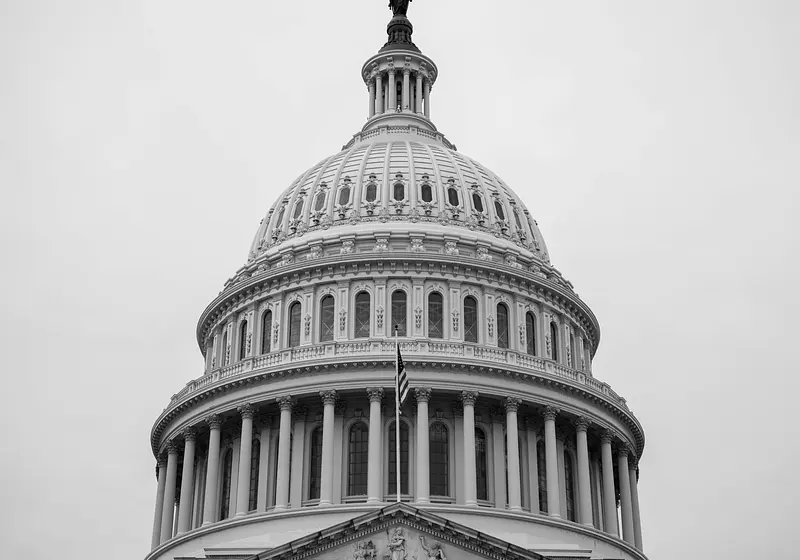The United States has historically held a leadership position on the world stage, yet this influence is now facing mounting obstacles, for deep polarization has a chokehold on our nation. No longer just mere political squabble, polarization undermines our capacity to navigate domestic and international challenges and continues expanding due to partisan divisions and internal party strife.
Let us slide into your dms 🥰
Get notified of top trending articles like this one every week! (we won't spam you)The Emotional Divide
The animosity between Democrats and Republicans does not solely lie in policy disagreements. PEW reported in 2014 that 27% of Democrats believe the Republican Party is a threat to the nation’s well-being, with 36% of Republicans reciprocating the sentiment.
Research published by the Carnegie Endowment for International Peace found that affective polarization (or emotional polarization) seems to stem primarily from three things: an individual’s misconceptions regarding the policy beliefs of the opposing party, the thought that members from the opposing party dislike members of their party, and incorrect ideas surrounding the demographic makeup of the other party.
People tend to stereotype and demonize the opposing party. A Republican might picture all Democrats as latte-sipping socialists, while a Democrat might envision all Republicans as golf-playing millionaires. These demonstrably inaccurate portrayals, as evidenced by Carngegie’s studies showing a similarity in median demographics between the parties, paired with overestimations of ideological extremism, create a climate of distrust that makes compromise seem like surrender.
Take the Quiz: Which Indian city is the perfect holiday spot for you!?
Let's match you with an Indian city that you would love!
Ideological Divergence
The distance between the two major parties isn’t just emotional; it’s ideological. PEW Research Center discovered that Democrats and Republicans are more ideologically distant than they have been in the past half-century, indicating a departure from centrist ideals that once bridged the partisan gap.
Over the last twenty years, the percentage of Americans holding consistently conservative or consistently liberal views has increased from 10% to 21%. Party affiliation and ideology are now more intertwined than ever before. Consequently, there is less ideological common ground between the two major parties, with the majority of Republicans positioned to the right of the typical Democrat and most Democrats leaning left of the typical Republican. This divergence is not confined to rhetoric but is evident in both parties' policy platforms and legislative agendas.
Republicans are witnessing a surge in social conservatism. In 2021,60% of Republicans identified as socially conservative, a figure that rose to 74% by 2022. This rise in social conservatism is evident in numerous occurrences, such as the Supreme Court’s (which is primarily composed of Republicans) decision to overturn Roe V. Wade, Florida’s enactment of SB 254 under Governor Ron Desantis (R-FL), which criminalizes health care providers offering gender-affirming care, and the Alabama Supreme Court’s ruling that considers embryos created through in-vitro fertilization as children, equating the destruction of an embryo to murder.
On the flip side of the political spectrum, Democrats have passed more progressive legislation. The Respect for Marriage Act of 2022, led by Senator Tammy Baldwin (D-WI), mandates that the federal government officially recognizes legally performed same-gender marriages. While advocating for the legalization of same-gender marriage is not a new phenomenon, it contradicts the deeply held belief of many Republicans that marriage should solely be between a man and a woman. Minnesota’s Democratic Party exemplifies the progressive agenda through policy advancements, including strengthening abortion protections, enabling pre-registration for driver’s licenses for teenage undocumented immigrants, prohibiting conversion therapy, and other initiatives.
Impact on Domestic and Foreign Policy
In 2023, Congress passed only 27 bills—a record low. Party and intraparty divisions, particularly on issues like the Ukraine-Russia war, Israel-Hamas conflict, and U.S.-Mexico border security, have precipitated gridlock in Congress, weakening the American ability to respond effectively on the world stage.
October 2023 saw a bipartisan effort in the Senate aimed to address border security by proposing a bill that would have bolstered the US Border Patrol and ICE with 2,700 new agents and allowed the agencies to remove individuals without undergoing formal judicial review. In addition, it would have terminated catch-and-release practices, increased deportations, and stopped parole at the border. However, Speaker of the House Mike Johnson (R-LA) ’s decision to forgo a vote on the bill resulted in Senate Republicans retracting their support, fearing the political fallout of endorsing a measure unlikely to become law.
Moreover, despite the Senate’s proposal for a $95 billion package of aid for Ukraine, Israel, and Taiwan, the House of Representatives refused to vote, largely due to Republican opposition. Interestingly enough, the GOP lacks a cohesive stance on foreign aid to Ukraine, with Internationalist Republicans like Nikki Haley and Senate Minority Leader Mitch McConnell advocating for aid, while the MAGA and more right-wing faction, consisting of people like Marjorie Taylor Greene, demand complete cessation of aid in favor of prioritizing domestic border security concerns.
Similarly, the Israel-Hamas conflict exposes partisan divides within the Democratic party. Most (in congressional positions) back Israel, but progressive voices call for a ceasefire and a shift in aid toward Gaza. President Biden’s initial response to the war faced sharp criticism from progressive quarters within his party, and now public debates on certain resolutions related to the conflict are surfacing.
For one, CNN reported that Rep. Andre Carson (D-Ind) called Rep. Josh Gottheimer (D-NJ) a “punk” and “cowardly” after Gottheimer wrote on X that Democrats who voted against the resolution supporting Israel and condemning Hamas were “despicable.”
Challenges in Maintaining Bipartisanship
Simply put, what used to be bipartisan isn’t. The President’s Emergency Plan for AIDS Relief (PEPFAR) enjoyed bipartisan backing for two decades, saving millions of lives in impoverished nations. That said, the program’s reauthorization faces opposition from anti-abortion groups pressuring Republicans due to concerns about funding going through non-governmental organizations providing family planning services in recipient countries. This initiative used to be favored by both parties, but now its politicization is making room for polarized debate.
Another impediment to bipartisanship lies in the takeover of partisan media and echo chambers. A study by Berkeley political scientist David E. Broockman and Berkeley alumnus Joshua L.
Kalla of Yale University has revealed that one in five registered Republicans devote at least eight hours per month to watching right-wing Fox News. Likewise, around 15% of Democrats indulge in a comparable amount of coverage on networks such as MSNBC and CNN. Shockingly, about 1 in 7 Americans consume over eight hours of partisan media per month, surpassing both newspaper subscribers and viewership of nonpartisan national broadcast news. This extensive consumption of ideologically aligned news coverage perpetuates partisan divides by reinforcing pre-existing beliefs and limiting exposure to the opposing party’s perspective.
Lastly, the personalization of politics. Strong political affiliation is not just about policy. It has become central to thousands of people’s self-image.
From teenagers belonging to partisan youth groups like High School Democrats of America and the Young Republican National Federation to heated arguments erupting in everyday settings, political views are omnipresent. When political views start to define one’s personhood, it only complicates bipartisanship and independent thinking.

















